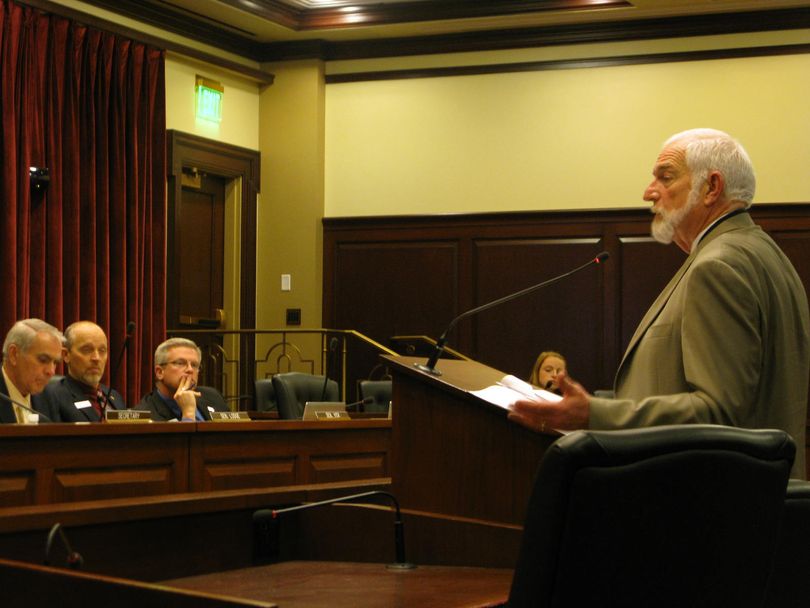No vote today on justice reinvestment bill

Today’s justice reinvestment hearing ended without a vote. Afterward, the Senate and House judiciary chairs said they’re not sure yet whether there will be changes to the bill, SB 1331, before it moves forward. “This could go on and on – we had to bring something forward,” said Sen. Patti Anne Lodge, R-Huston. Said Rep. Rich Wills, R-Glenns Ferry, “A year’s work is not going to go down the drain because of different opinions. We have to move on.”
During today’s hearing, 4th District Judge Mike Wetherell cautioned that Idaho’s current unified sentencing law, which dates back to 1986, has had good results. “Folks that did this initially back in 1986, they had some good ideas,” Wetherell said. “We shouldn’t abandon ideas easily that resulted in one of the lowest crime rates in the United States.”
Ada County Prosecutor Greg Bower said he’s long been part of the justice reinvestment project, and will continue to work on it. But he said Idaho’s current unified sentencing act is what makes sure “what we’re doing in the courtroom will actually come to pass. This piece of legislation is the most significant threat to the unified sentencing act that I’ve observed in 28 years of watching and cooperating with this Legislature.” Idaho’s unified sentencing system has judges set both a fixed and indeterminate term for each sentence, like five to 10 years. The fixed portion must be served. During the indeterminate portion, the Parole Commission decides when an inmate should be released on parole.
But the justice reinvestment project found that the result is that non-violent offenders spend twice as long behind bars in Idaho as they do in the rest of the nation. That’s why the bill includes having non-violent offenders released on parole by the time they’ve served 150 percent of their fixed terms. They still could be returned to prison if they violate their parole.
Wetherell recommended that the Legislature “slow down” on the project and examine how it’s working in other states. “Will our legislature appropriate the necessary funds to hire the added state employees, pay them market wages and benefits and invest the money necessary to maintain their competence to perform the tasks which this shift in emphasis in resources requires?” he asked. “If that is not done, this will not work. What we will have then will be Justice Disinvestment, not Justice Reinvestment.”
He pointed to Oklahoma, where justice reinvestment legislation passed, but wasn’t funded, and nothing was accomplished. Sen. Patti Anne Lodge, R-Huston, said in that state, term limits removed the speaker who worked on the legislation, “and then politics got in the way, and they didn’t get the funding to carry it on. We have some funding.” She said, “We’ve worked with JFAC to make sure we have this funding.”
Lodge said SB 1331 has been sent out to all of Idaho’s district judges for input; the next hearing date hasn’t yet been set. “We cannot continue to spend money and not change people and change lives,” she said. “The more we’re spending on our prison system, the less we can spend on education.”
